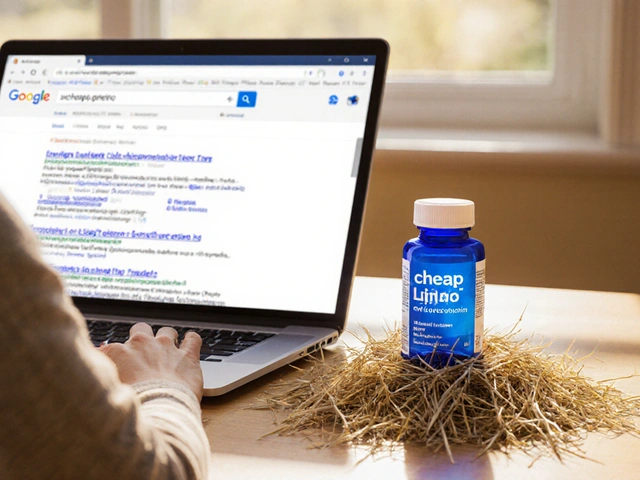Levothyroxine
If your doctor prescribed levothyroxine, you probably want clear, no-nonsense advice on how to use it safely. Levothyroxine is a synthetic thyroid hormone used to treat hypothyroidism (an underactive thyroid). It replaces the hormone your body isn’t making and helps restore energy, mood, and metabolism.
How to take levothyroxine
Take levothyroxine on an empty stomach for best absorption. Aim for 30–60 minutes before breakfast. If mornings don’t work, some people take it at bedtime — but that should be 3–4 hours after your last meal. Stick to one schedule and be consistent.
Watch what you take around the same time: calcium, iron supplements, antacids, and some multivitamins can block absorption. Wait at least four hours after levothyroxine before taking those. Avoid drinking soy milk or eating a very high-fiber meal right with your dose; they can lower how much medicine your body gets.
If you forget a dose, take it as soon as you remember the same day. Don’t double up the next day.
Dosage, monitoring, and pregnancy
Dosage varies a lot between people. Doctors usually start low for older adults or anyone with heart disease and raise the dose slowly. Your thyroid-stimulating hormone (TSH) level is the best way to check if the dose is right. Expect a blood test about 6–8 weeks after starting or changing dose, then every 6–12 months if stable.
Pregnancy changes thyroid needs. If you’re pregnant or planning pregnancy, tell your provider — doses often need to increase and TSH should be checked each trimester.
When switching brands or between brand and generic, ask your doctor or pharmacist. Small differences in pills can affect TSH, so labs are often repeated after a switch.
Watch for signs that your dose is off. If you feel sluggish, cold, constipated, or are gaining weight, the dose may be too low. If you have racing heart, trouble sleeping, sudden weight loss, or shakiness, the dose may be too high. Report heart-related symptoms immediately.
Some meds interact with levothyroxine: warfarin (blood thinner) may become stronger, certain diabetes meds may need adjustment, and some acid-reducing drugs can reduce levothyroxine absorption. Tell every provider and your pharmacist you take levothyroxine.
Store it at room temperature in a dry place. Keep it away from heat and humidity like bathrooms. If you have questions about side effects, interactions, or lab results, talk to your doctor or pharmacist — they’ll help you adjust safely and keep thyroid levels steady.

Find the Best Deals on Synthroid: Your Complete Guide to Levothyroxine Savings
This comprehensive article explores various aspects of finding the best Synthroid deals, understanding its medical implications, side effects, drug interactions, and advisable dosages. It provides valuable insights and practical advice for individuals dealing with hypothyroidism and those seeking ways to manage their Synthroid medication expenses effectively. Whether you're a new patient or looking for more affordable options, this guide lays down everything you need to know about Synthroid and its generic counterpart, Levothyroxine.
Categories
- Medications (70)
- Health and Medicine (60)
- Health and Wellness (36)
- Online Pharmacy Guides (16)
- Nutrition and Supplements (8)
- Parenting and Family (3)
- Environment and Conservation (2)
- healthcare (2)
- prescription savings (1)



